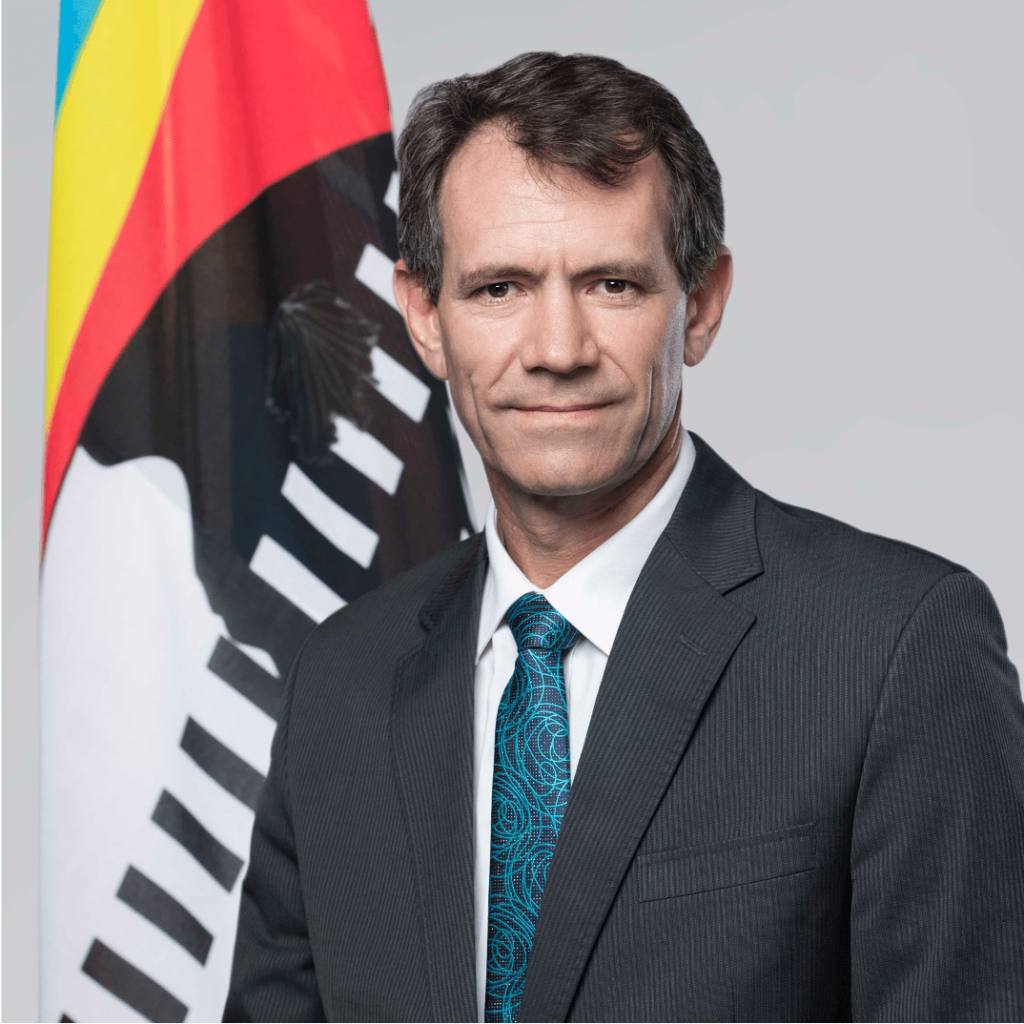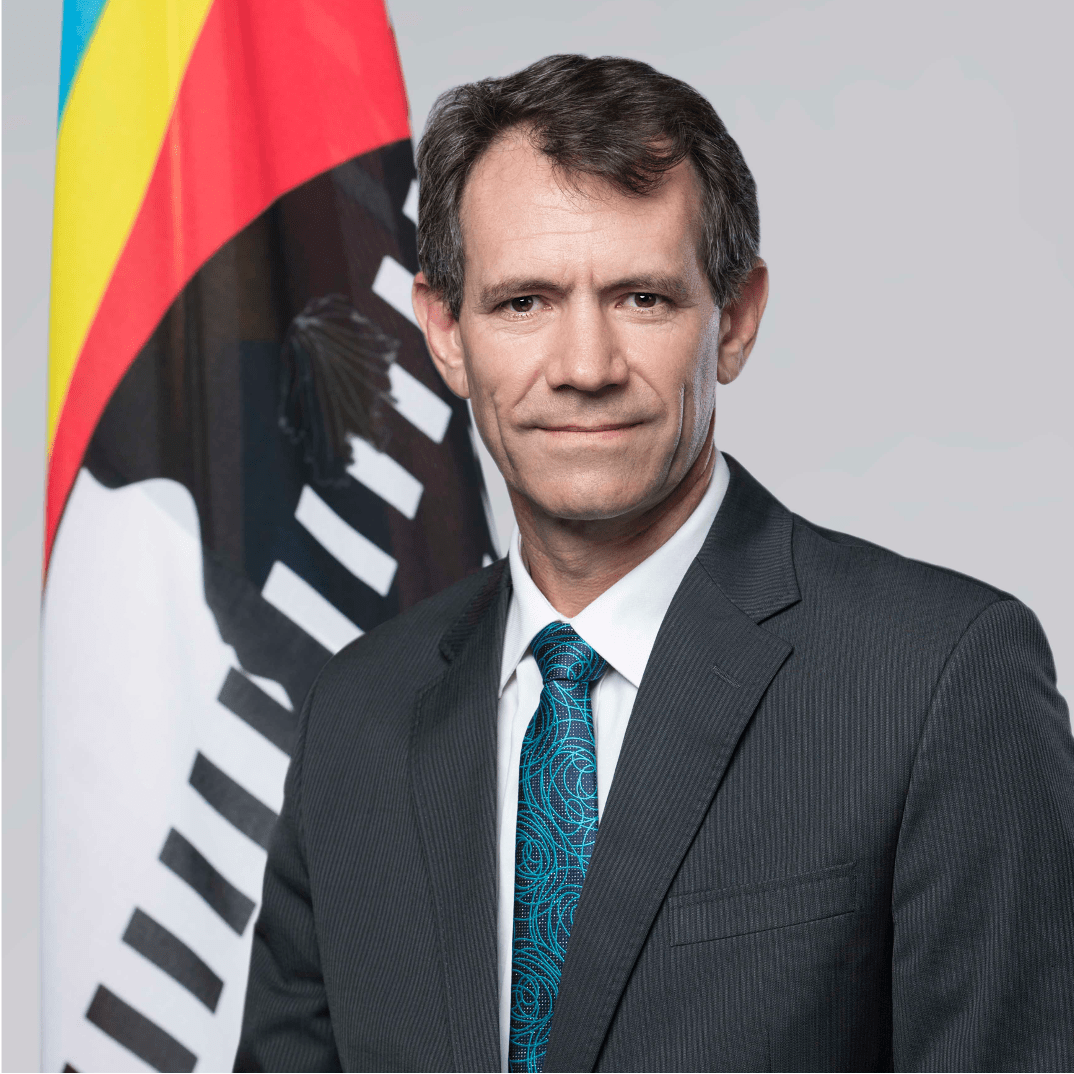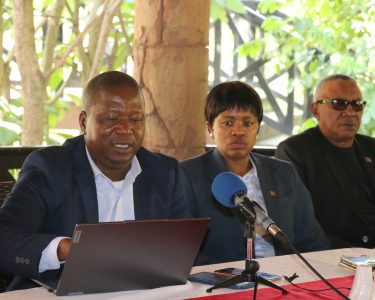
By Ntombi Mhlongo
Finance Minister Neal Rijkenberg has met serious resistance to his envisaged tax amendments.
Members of Parliament voted against Rijkenberg’s tax proposals from his February Budget Speech which he said would help to increase the tax base and generate more revenue for the government. The Budget Speech contained, among other things, how his ministry planned to introduce tax changes in the 2022/23 financial year. However, things did not go his way as MPs voted against almost all the changes he had proposed.
However, MPs rejected the plans and even questioned if the proposals were thoroughly thought out and tested against the country’s socio-economic standing. This transpired in Parliament during the adoption of the Income Tax (Amendment) Bill, Bill No. 7 of 2022 which sought to amend the Income Tax Order 1975 to provide for the small taxpayer regime taxation or presumptive tax, the review of tax incentives, the introduction of non-discriminatory tax incentives, the taxation of residents on worldwide income, subject to relief from juridical double taxation and strengthening of anti-avoidance provisions.
A report by the portfolio committee which was adopted and passed reflects that the committee, following consultations with stakeholders and the ministry itself, managed to put their foot down and scrapped some of the amendments they felt were going to make the lives of emaSwati and their businesses suffer. The MPs halted the implementation of what is known as worldwide taxation as they felt that it would chase away investors.
When the Bill was tabled early this year, the minister said the worldwide taxation was necessitated by the fact that the Kingdom of Eswatini tax is source-based. Therefore, the amendment was meant to extend Eswatini’s jurisdiction to tax the foreign-source income of residents. Had it been implemented, the government would have been able to assert jurisdiction to tax all residents on their worldwide income with relief from international tax generally provided by way of a foreign tax credit.
The gross income of a resident taxpayer was to include income from all sources, while a non-resident taxpayer was to be subjected to tax only on Eswatini – source income. The amendment was also to cater for the inclusion in the gross income of any disposal of a business asset. Chairperson of the Ministry of Finance Portfolio Committee MP Marwick Khumalo explained that such a tax worked in most developed countries but local stakeholders felt it was not good for the Kingdom.
“The concern is that those who want to come and invest in the country could be turned off and go and invest somewhere. What we will get from worldwide taxation is not that much substantial. Stakeholders felt that investors will shun the country,” he said.
Khumalo explained that an agreement was reached that for now, let worldwide taxation be halted until such a time when the environment is conducive. He further stated that currently, Eswatini was on its knees begging investors to come to the country. Stakeholders who participated in the deliberations of the Bill are said to have raised concerns on the introduction of worldwide taxation, basing their arguments that few emaSwati are working outside the country. Eswatini has a population that stands at 1.2 million.
They further wanted to know whether a cost-benefit analysis was made before the proposal to introduce this form of tax. In the second amendment, the MPs did not approve of a proposal to reduce corporate tax from 27.5 per cent to 25 per cent. Their decision was based on the fear that the reduction might not achieve the desired result. The proposal to enforce the reduction was motivated by the fact that the government was of the view that it would attract more businesses and thereby increase the tax base.
The minister also failed in his plan to leave more cash in people’s pockets earning less than E250 000 per year. During the Budget Speech, the minister had said the plan was to create a set-up where individuals were to start paying tax from E4 000 per month instead of E3 500 per month. He said that since the government cannot afford to have this reduction other than lifting the upper limits of those earning more, the upper tax bracket was, therefore, to be lifted from 33 per cent to 36 per cent.
This, he had argued, would mean that 80 per cent of the taxpayers would be better off with more money in their pockets and 20 per cent of higher income earners paid more than E300 000 per year would be worse off. Instead of approving this setup, the MPs passed that the 33 per cent should stay.
A proposal to give powers to the Eswatini Revenue Services (ERS) to lock up the business premises of a person liable for tax who has failed to comply was also thrown out. Stakeholders raised concerns about how Clause 29 (1) of the Income Tax (Amendment) Bill, Bill No. 7 of 2022 was crafted.
The clause reads: “Where a person liable for tax has failed to remit the amount payable by that person within the prescribed time, the commissioner may lock up and seal the business premises of that person and after that, the goods in the business premises shall be deemed to have been attached and at the disposal of the Commissioner”.
Stakeholders viewed this clause as being unconstitutional because only courts can issue an order to attach goods for non-compliance. The portfolio committee proposed that the clause is amended in such a way that it provides for the commissioner to file an application at the Magistrate Court or High Court for an order to lock up and seal the business premises.
In reaction to the decisions taken by the MPs, Rijkenberg said the proposed tax increments were meant to try and balance things up.
“The purpose of the tax changes was to get the government balance better. Inequality is very high in Eswatini and it was time to correct it. At the same time, we were trying to make the country attractive while ensuring that government does not lose tax,” he said.
He conceded that following the decision by the MPs, the government would most probably be collecting less tax from the current fiscus because of the rejected increases.
THE MINISTER’S PROPOSAL AND WHAT THE MPs DECIDED;
| AMENDMENT PROPOSED | JUSTIFICATION BY MINISTER | WHAT MPs DECIDED | JUSTIFICATION BY MPs |
| Increase PAYE from 33% to 36% | It will address inequality | PAYE should remain at 33% | No emaSwati are in support of it. |
| Reduce corporate tax from 27.5% to 25% | To assist companies to grow quicker and solve unemployment. | Corporate tax should remain at 27.5% | No guarantee that it will grow companies |
| Introduce world taxation | To extend Eswatini’s jurisdiction to tax the foreign-source income of residents. | Halt world taxation for now | It will chase away investors |
| Threshold too low, needs to be aligned with definition of SMEs which is E3million | Turnover should stand at E1.5 million | Small businesses should be allowed to breathe | |
| To make businesses comply | Penalties per day should be increased from E20.00 to E25.00. | Proposed increase excessive, considering the state of the economy. |






